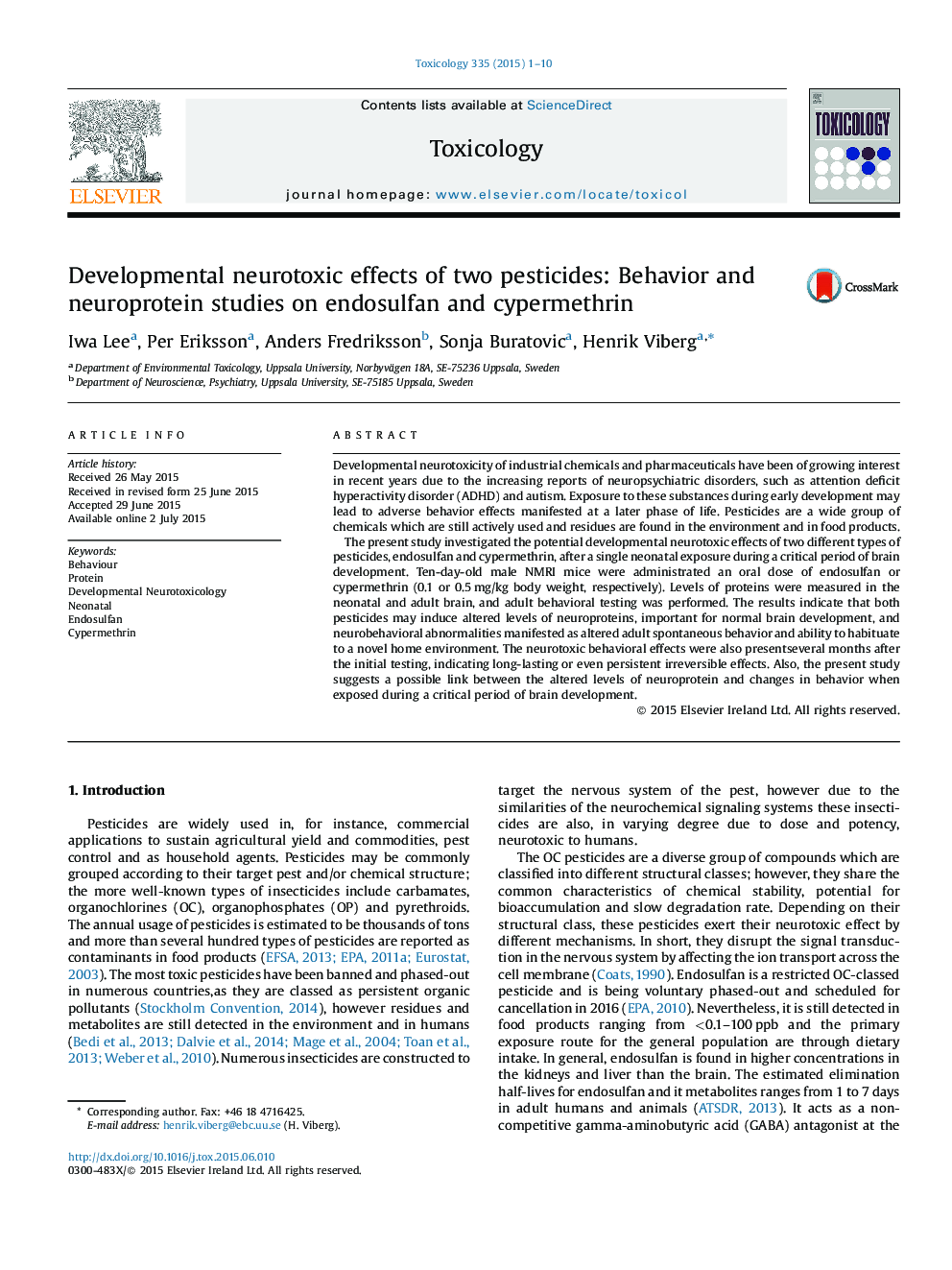| Article ID | Journal | Published Year | Pages | File Type |
|---|---|---|---|---|
| 5859004 | Toxicology | 2015 | 10 Pages |
Abstract
The present study investigated the potential developmental neurotoxic effects of two different types of pesticides, endosulfan and cypermethrin, after a single neonatal exposure during a critical period of brain development. Ten-day-old male NMRI mice were administrated an oral dose of endosulfan or cypermethrin (0.1 or 0.5Â mg/kg body weight, respectively). Levels of proteins were measured in the neonatal and adult brain, and adult behavioral testing was performed. The results indicate that both pesticides may induce altered levels of neuroproteins, important for normal brain development, and neurobehavioral abnormalities manifested as altered adult spontaneous behavior and ability to habituate to a novel home environment. The neurotoxic behavioral effects were also presentseveral months after the initial testing, indicating long-lasting or even persistent irreversible effects. Also, the present study suggests a possible link between the altered levels of neuroprotein and changes in behavior when exposed during a critical period of brain development.
Related Topics
Life Sciences
Environmental Science
Health, Toxicology and Mutagenesis
Authors
Iwa Lee, Per Eriksson, Anders Fredriksson, Sonja Buratovic, Henrik Viberg,
